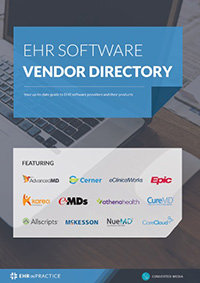What will the US elections mean for the health IT industry?
For better or worse, healthcare and politics are inextricably linked. One should not go as far to state it is a symbiotic relationship; rather a more apt description is that the healthcare industry must weather the political winds, sometimes to its advantage, other times the highly politicized nature of healthcare policy can appear as if it's grinding its axe on the healthcare system.
The 2016 elections present the first real prospect that the health IT regulatory landscape could shift due to a change in the balance of power in the Federal Government. The most drastic changes would likely emerge from the Republicans winning the White House and holding their majority in Congress. With the needed legislative authority, the policy agenda related to repealing Obamacare and deregulating healthcare would become a reality. In the health IT market these changes could largely disrupt the efforts to modernize healthcare through ‘top-down’ measures.
Recommended reading: get your EHR selection project off to a flying start with our EHR Selection Survival Guide. Lead your practice to selection success.
Where the frontrunners stand
In one of the most unique election cycles in recent memory, the healthcare policies proposed by the presidential candidates have been lacking in substance. Predictably, the Democrat and self-styled socialist Bernie Sanders is calling for a single payer system, much like those found in Scandinavian countries. Carrying on the Clinton family tradition of centrist pragmatics, Hillary Clinton supports a continuation of the Obama administration’s healthcare policies with an added emphasis on cost containment.
On the Republican side, Donald Trump proposes to repeal Obamacare and offers the rather ambiguous pledge to work with Congress to make sure free market principles and economic freedom are guaranteed in the healthcare system. Ted Cruz predictably carries on his vendetta against Obamacare, offering an alternative steeped in market-oriented policies.
One can deduce from the policies of the Republican candidates that the regulatory environment for EHRs would shift toward deregulation, which would likely remove any mandates regarding how technology is used in medical practices. However, there is one caveat: whoever ends up sitting in the Oval Office will need a cooperative Congress to pass any type of healthcare policy.
How different electoral outcomes could affect health IT
There are four possible scenarios that could affect healthcare policy, and by association the regulation of EHRs:
Scenario 1: Republican president, Republican House, and Republican Senate: Under this scenario the often-threatened repeal of Obamacare and a shift to deregulation would occur.
Scenario 2: Democratic president, Republican House, and Republican Senate: Mass overhauls of current healthcare policy would likely not occur, that is assuming the required two-thirds of each chamber of Congress could must a veto override.
Scenario 3: Republican president, Republican House, and Democratic Senate: Under this scenario we would likely see more gridlock as any efforts at healthcare reform would be blocked by a Democrat-controlled Senate.
Scenario 4: Democratic president, Republican House, and Democratic Senate: Same as Scenario 3 above.
At present, the Democrats require five seats to take over the Senate majority absent a win in the presidential election. However, they could take control with four seats since a Democratic vice president would serve as president of the Senate.
The House will likely remain in Republican hands with the Democrats needing to win 30 seats to seize control. Therefore, whether the current regulatory environment for EHRs will remain the same hinges on who takes the White House. As such, the healthcare industry must take note of the potential scenarios that could play out concerning EHR regulation.
Unfortunately it will be a long year of campaigns and conventions before the future prospects are known, so stay tuned
Free white paper

EHR Selection Survival Guide
The comprehensive guide to selecting the best EHR system for your medical practice.

Featured white papers
Related articles
-

Top ophthalmology EHRs for your selection shortlist
Got your eye on a new ophthalmology EHR? Here are some top contenders.
-

Allscripts acquires Practice Fusion: what this means for users
What effect will Allscripts' Practice Fusion acquisition have on the EHR market
-

Three 2018 digital health predictions from a physician and CMO
Expert advice on what to expect in the digital health sphere for the coming year




